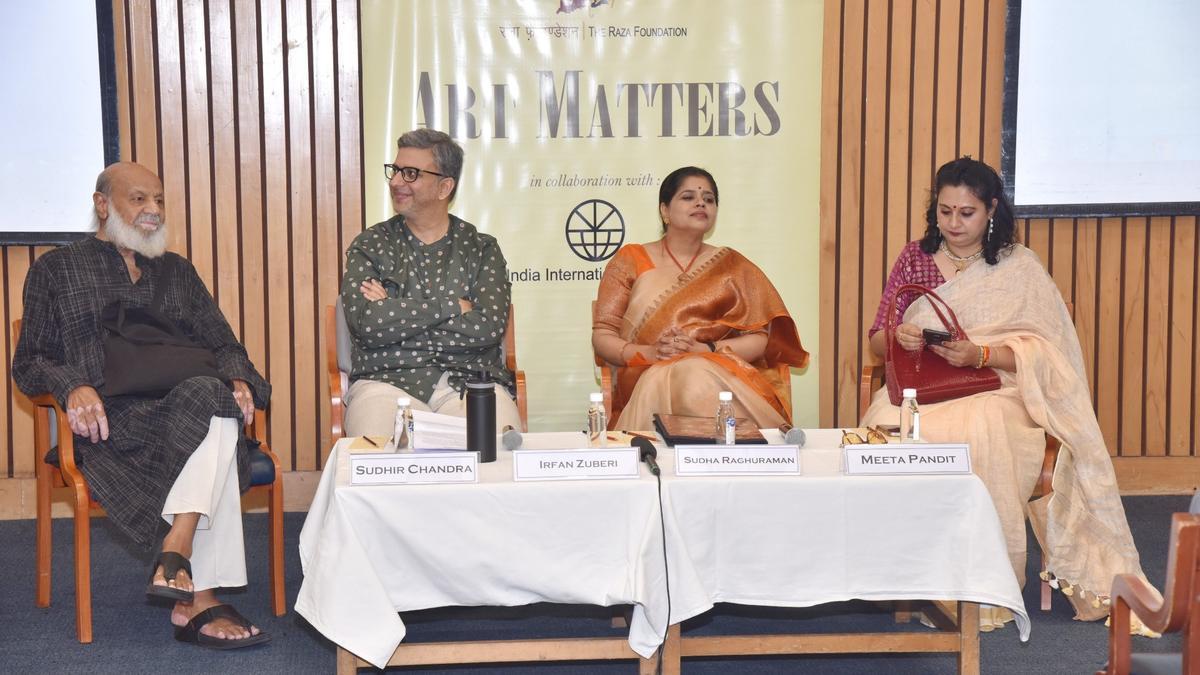
At the engaging event organized by the Raza Foundation titled ‘Art Matters,’ profound questions about Indian classical music and its intrinsic relationship with memory were brought to the fore. Experts gathered to illuminate the connections between music and memory and examine how the past influences the present in the realm of art.
The eclectic panel composed of the curator Irfan Zuberi, Carnatic vocalist Sudha Raghuraman, historian and music connoisseur Prof Sudhir Chandra, and Hindustani vocalist Meeta Pandit, delved into the essence of memory, each offering an individual perspective on its role in the unfolding of classical music’s complex tapestry.
Ashok Vajpayi of the Raza Foundation eloquently articulated the paradoxical nature of Indian classical music – while it is deeply rooted in memory, it simultaneously espouses impermanence. As such, the raga, a foundational element of this music, cannot be petrified in time. Previously, generations of musicians approached music as a dynamic entity, and in their commitment to preserving its living essence, they refrained from recordings. Conversely, today’s normalization of recordings has recast classical music into a “coded language,” altering its traditional form and spirit.
The discussion further intensified with Zuberi’s insights into the aural-oral tradition of music transmission, which resists linear interpretations. Music, as a component of memory, encapsulates both the mechanical repetition of rote learning and the intimate recall of melodies heard. Zuberi shared anecdotes of how certain pieces remain etched in history, synonymous with their creators, while other renderings of ragas have been immortalized by the virtuosic talents of musicians. One such example was evoked in the memory of Ustad Fahimuddin Dagar, who was visibly moved when performing ragas that conjured up the mastery of his father and grandfather.
Sudha Raghuraman, sharing a personal reflection, underscored the importance of maintaining the music’s structural integrity. She delved into her own instructional journey, reminiscing the teachings of her mentor Ustad Fahimuddin Dagar, and emphasized the significance of capturing the emotion or ‘bhava’ in compositions over the mere memorization of notes.
Prof. Sudhir Chandra, interpreting music through the lens of an aesthete, imparted stories of a lineage richly intertwined with musical admiration. His father, a Sanskrit scholar, displayed his profound connection with music at the end of his life, choosing to listen to Ustad Faiyyaz Khan’s melodies instead of the sacred shlokas of the Bhagavat Gita. In today’s climate of political reticence among musicians, Prof. Chandra fondly recollected a time when the eminent Pt. Bhimsen Joshi would stir audiences with poignant songs at the culmination of his concerts.
Meeta Pandit, advocating the ‘sina ba sina’ (chest to chest) method of pedagogy, emphasized the importance of internalizing every musical subtlety by heart. She challenged commonly held beliefs about early 20th-century musicians as uneducated, citing the scholarly contributions of her great-grandfather, Pt. Shankar Pandit, who authored eight books on music. Her words underscored a preference for learning through memorization, allowing for improvisation to flow spontaneously, not through prescribed notation, but as a distinct language born of the moment’s inspiration.
Bringing the illuminative discourse to a meaningful close, the panel collectively arrived at the understanding that within the Indian musical tradition, it is the oral transmission that supersedes the written text. Musical memories are not mere records of the past; they are the living vessels ensuring the perpetuation and evolution of this profound art form. This gathering underlines the vibrant influence of memory on the Indian classical music scene, as it continues to reverberate through time, an uninterrupted melody of collective cultural consciousness.












